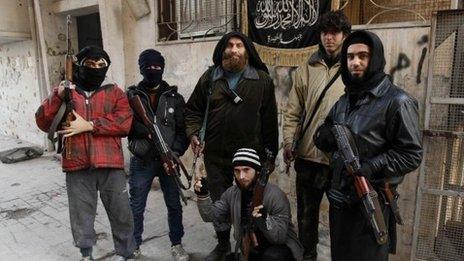Reluctant warrior Obama gathers the world to fight IS
- Published
- comments
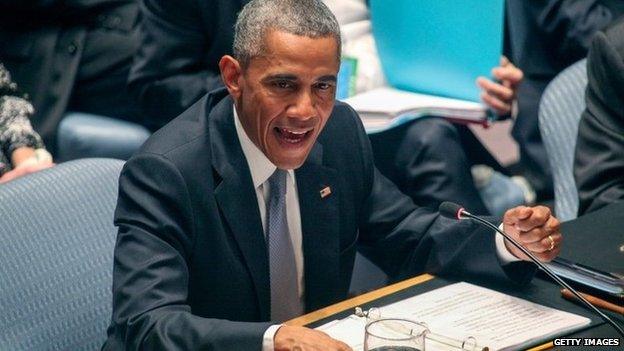
Obama has built a broad plan to confront IS, despite being reluctant to use force
Seeing as this is my first blog post since becoming North America editor, I feel I should be writing this from the midst of some important historic event.
But I am actually sitting in a New York hotel room, just a few blocks up - and a hundred lines of security away - from the United Nations.
I could be writing this from the press area at the UN on the East River, but to be honest the internet connectivity is what you might expect in a developing world village, not the epicentre of the global village.
I hope the 180 or so presidents and prime ministers are finding it easier to communicate with each other. So I have retreated to my room, and on the TV the US president has started chairing a meeting of the UN Security Council.
I am struck by the topsy-turvy nature of this presidency. It started with him being awarded a Nobel Peace Prize for which he had done nothing, and is ending with him committing to precisely the sort of military action that he had so studiously sought to avoid.
The critique of Barack Obama is that he is the commander-in-chief who wishes that he wasn't, that he's dithered over military action.
I've heard former generals argue that if only he'd done this a couple of years ago, the incubator that has allowed Islamic State to grow would have been shut off.
And the other much vaunted criticism is Mr Obama does not listen to advice. His cabal is small and tight, and if you are on the outside, your voice will not be heard.
One former senior Obama administration official confessed to feeling schadenfreude when he heard the US president had had to call in the grandees of yesteryear to advise on how to tackle Islamic State (IS).
But having listened and pondered (arguably too long) and defined a strategy, there is a clarity of thinking on IS.
On Wednesday, Mr Obama was passionate - these were people beyond the reach of rationality and diplomacy.
"No god condones this terror," he said. "No grievance justifies these actions. There can be no reasoning, no negotiation with this brand of evil.
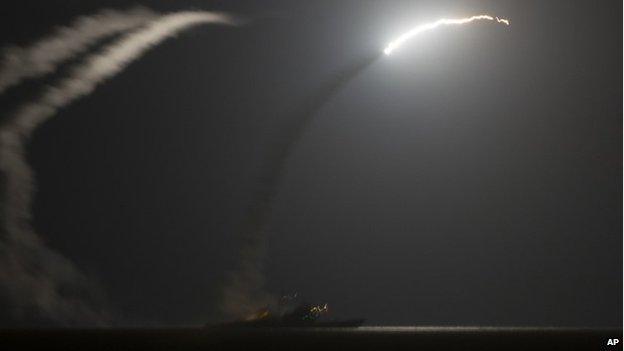
The US strikes in Syria follow weeks of attacks against IS militants in Iraq
"The only language understood by killers like this is the language of force. So the United States of America will work with a broad coalition to dismantle this network of death."
Yes, munitions have rained down on IS targets. But what Mr Obama and his administration have sought to do is put in place something more than just a plan of military attack.
The US treasury department is working on staunching the pipeline of money that is keeping IS awash with cash.
The session of the Security Council that the president is chairing now is all about stopping the foreign fighters going to fight in the Middle East, but Mr Obama also urged Muslim communities to challenge the corruption of young minds by violent ideology.
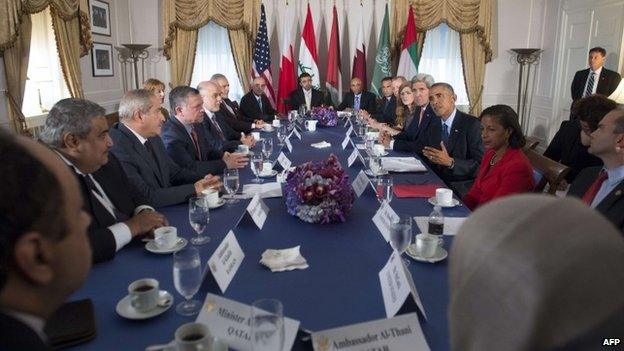
Obama met leaders from the Arab nations which joined the strikes during a sideline meeting at the UN
But perhaps the most significant thing this reluctant warrior has done is assemble a broad-based coalition. Forty countries at the moment, but rising all the time. And most significantly, he has brought in several Arab countries to fly alongside US jets.
This allows the US president to say to the international community the strikes are not America acting as global policeman. It allows him to say to his domestic doubters, this is not going to be another war where tens of thousands of American soldiers are bogged down in a protracted, morale-sapping conflict.
He said he wanted the world to unite in this battle. And it just might.
- Published25 September 2014
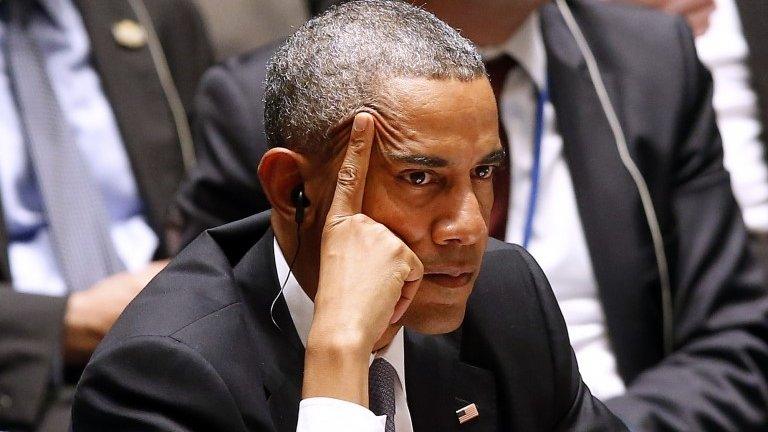
- Published24 December 2013
